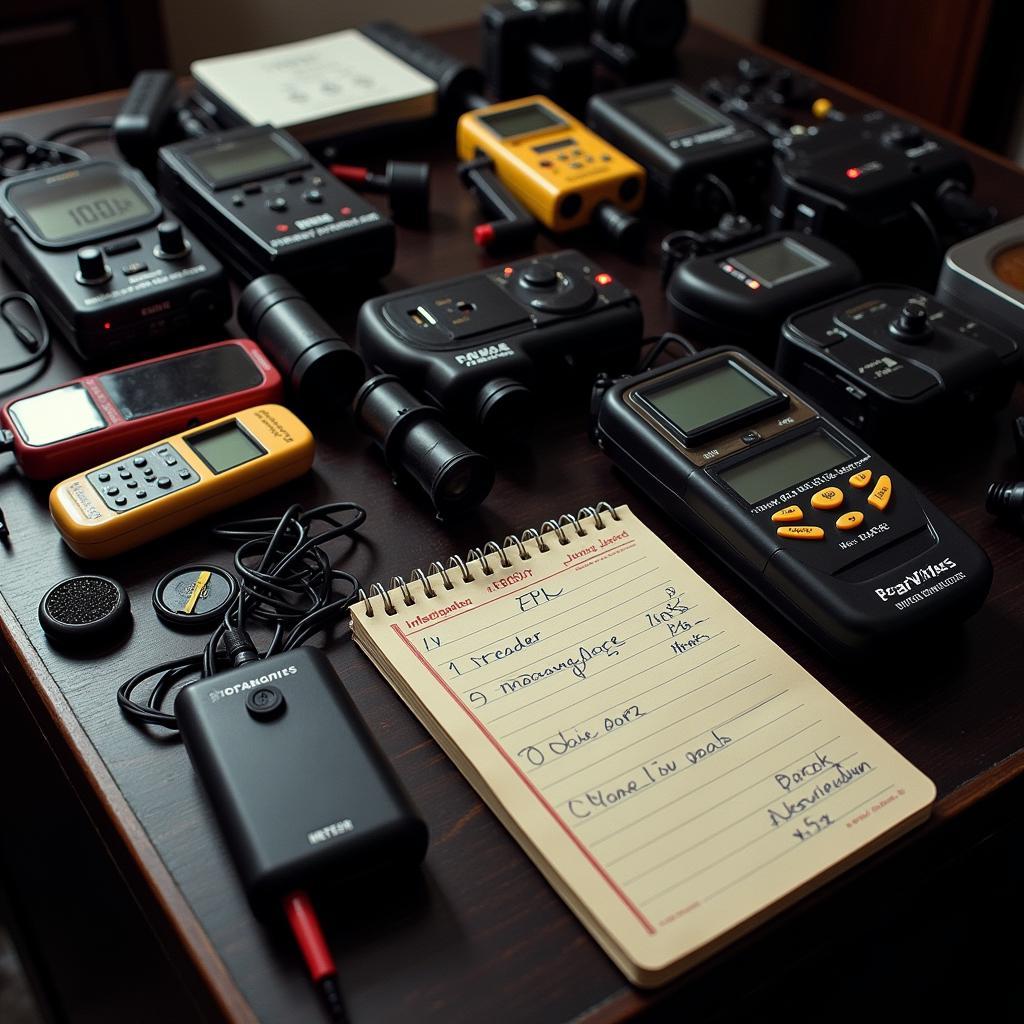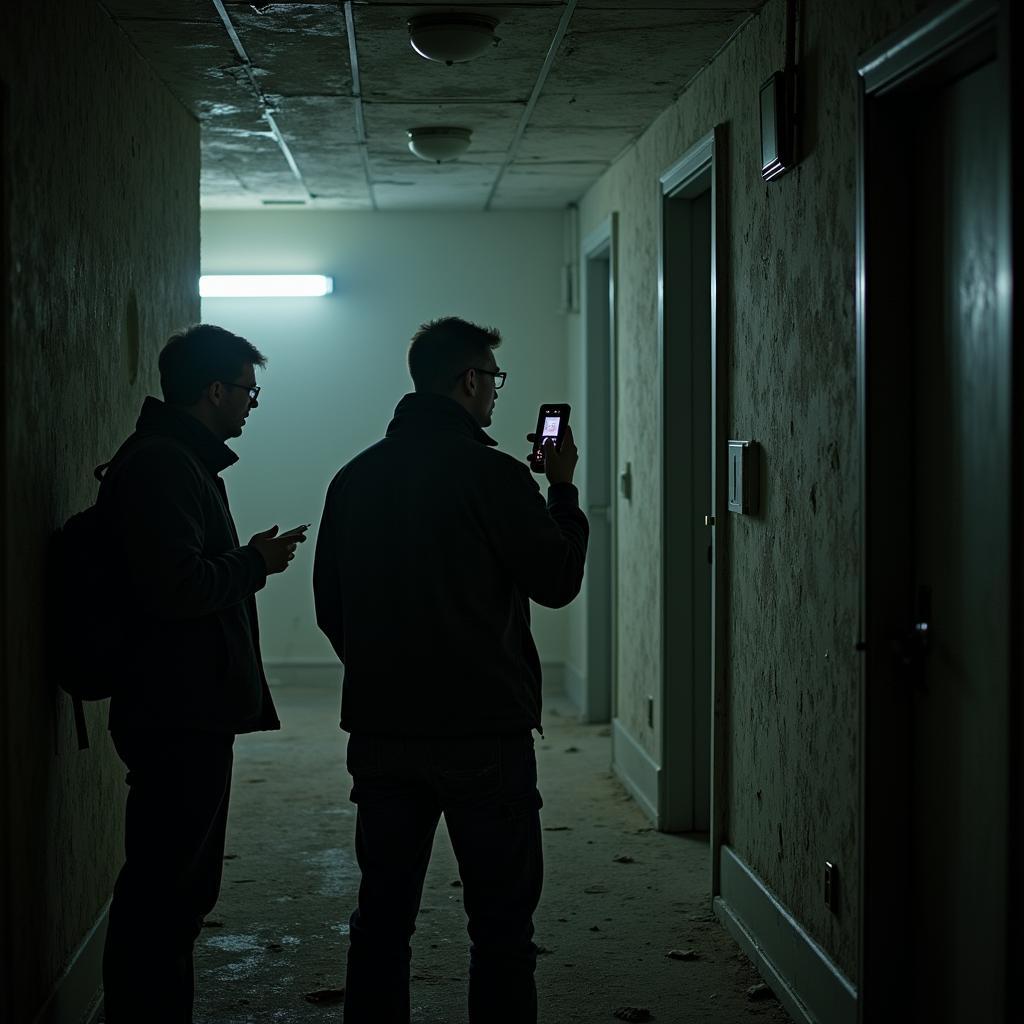The phrase “For Research Purposes” often conjures up images of dimly lit libraries, dusty archives, and tireless scholars hunkering over ancient texts. While these elements certainly hold a place in the realm of research, the scope of inquiry extends far beyond these traditional confines, particularly when delving into the enigmatic world of the paranormal.
Delving into the Paranormal: Research with a Purpose
Paranormal research, by its very nature, is a quest for knowledge, a pursuit to illuminate the shadows of our understanding. It is driven by a fundamental human need to explore the unknown, to seek answers where conventional explanations fall short. Whether investigating reports of ghostly apparitions, psychic phenomena, or unexplained events, researchers are united by a common goal: to uncover the truth “for research purposes.”
Methodologies and Approaches: A Quest for Evidence
Paranormal research employs a diverse range of methodologies, borrowing from fields as varied as psychology, physics, and anthropology.
- Scientific Investigation: Many researchers utilize scientific instruments such as EMF meters, digital voice recorders, and infrared cameras to capture and analyze potential evidence.
- Historical Analysis: Examining historical records, folklore, and eyewitness accounts can provide valuable context and potential leads for investigations.
- Interviews and Observation: Gathering firsthand accounts from individuals claiming paranormal experiences is crucial, as is direct observation of alleged phenomena.
 Paranormal Investigation Equipment
Paranormal Investigation Equipment
Ethical Considerations: Respect and Objectivity
Given the sensitive nature of paranormal research, ethical considerations are paramount. Researchers must prioritize the well-being and privacy of individuals involved, always obtaining informed consent and handling potentially distressing information with sensitivity. Objectivity is also crucial. While a passion for the unknown is a driving force, researchers must maintain a critical and unbiased approach, evaluating evidence rigorously and avoiding premature conclusions.
The Importance of Documentation: Building a Body of Knowledge
Meticulous documentation is the backbone of any credible research endeavor, and paranormal investigation is no exception. Detailed records of investigations, including dates, times, locations, environmental conditions, witness testimonies, and any collected data, are essential for analysis and potential replication.
 Paranormal Research Team Documenting Evidence
Paranormal Research Team Documenting Evidence
The Role of Skepticism: A Necessary Counterbalance
Skepticism, far from being antithetical to paranormal research, plays a vital role in ensuring its integrity. A healthy dose of skepticism encourages critical thinking, challenges assumptions, and helps to eliminate alternative explanations for observed phenomena. As renowned skeptic Carl Sagan once said, “Extraordinary claims require extraordinary evidence.”
The Ongoing Quest: “For Research Purposes” and Beyond
Paranormal research is, by definition, an ongoing journey, a continuous exploration of the uncharted territories of our existence. Each investigation, every piece of data collected, every unanswered question fuels the pursuit of knowledge “for research purposes.”
While definitive answers may remain elusive, the quest itself is invaluable, fostering curiosity, challenging our perceptions, and pushing the boundaries of our understanding of the universe and our place within it.
FAQs about Paranormal Research
1. What is the goal of paranormal research?
The primary goal of paranormal research is to investigate and attempt to understand phenomena that are outside the realm of current scientific explanation. This is done “for research purposes,” to gather evidence and build a body of knowledge about these unexplained occurrences.
2. What are some methods used in paranormal research?
Paranormal investigators utilize a variety of methods, including scientific equipment (EMF meters, cameras, etc.), historical research, interviews, and direct observation to gather and analyze evidence.
3. Why is ethics important in paranormal research?
Given the sensitive nature of the subject matter and the potential for encountering vulnerable individuals, ethical considerations are crucial in paranormal research. Researchers must prioritize respect, consent, and confidentiality.
4. What is the role of skepticism in paranormal research?
Skepticism is essential for ensuring the integrity of paranormal research. It encourages critical thinking, helps to rule out alternative explanations, and ensures that extraordinary claims are met with a suitable level of evidence.
Need Help with Your Own Paranormal Research?
Contact us 24/7 for support:
- Phone: 0904826292
- Email: research@gmail.com
- Address: No. 31, Alley 142/7, P. Phú Viên, Bồ Đề, Long Biên, Hà Nội, Việt Nam
We’re here to help you explore the unknown.